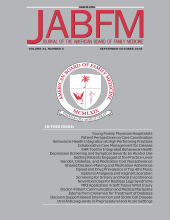The article presents the patient-team partnership as very effective in recognizing patients’ contributions in decision making and respecting patients’ goals and social context. This conclusion was very well evidenced by the present study, which deals with a research initiative to improve primary care practices in Colorado and New Mexico, funded by the Agency for Research and Quality in Health.1
A study by Wagner and colleagues2 corroborates with this study, since it correlates the doctor-team-patient relationship with the patient-centered model as a way to promote and include self-management support. The results of this study add to our understanding that careful attention—and action—in the work-culture and readiness for transformation can create more favorable starting conditions for effort to change practice thus improving self-management support in primary care practices.2
This way, we can realize the importance of patient-team partnership in the health context—prevention, illness and cure—however, in Brazil this partnership is not so evident, nor effective. The study by Katiucha and collaborators3 supports this fact, since, through a qualitative, descriptive study, with 26 health professionals from the HIV/AIDS Therapeutic Home Care and Family Health Strategy teams 8 patients/caregivers, this demonstrates that the teams do not develop integrated actions, but believe in improving the quality of care, if care were joint, and concludes that it is necessary to promote, with institutional support, the articulation of the teams to achieve integration and, consequently, the reach of humanized and quality assistance.
Therefore, the current study presents considerable data that show us the importance of the doctor-team-patient relationship, especially regarding the progression and prognosis of chronic diseases, and also provides us with foundation for the implementation of such practice more effectively in primary care in health in Brazil.
Notes
The above letter was referred to the authors of the article in question, who declined to respond.
To see this article online, please go to: http://jabfm.org/content/33/2/000.full.







